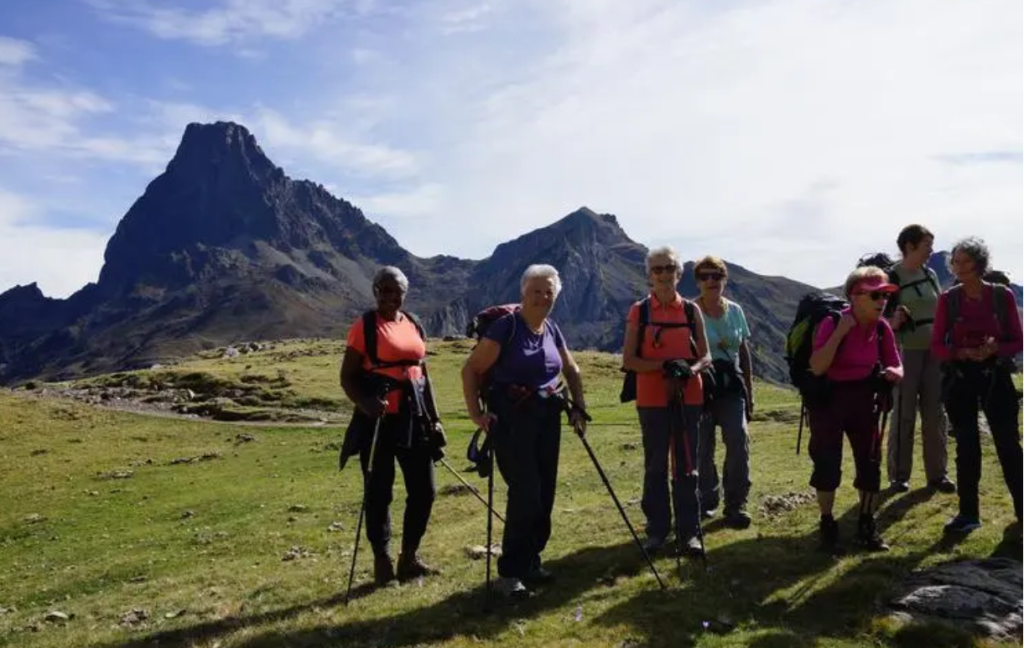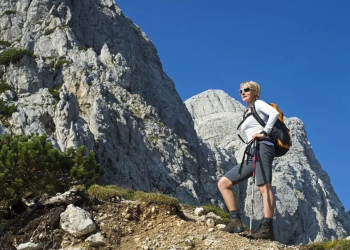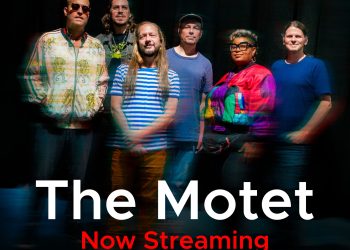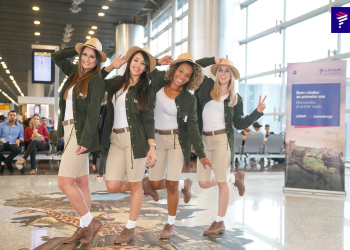Mastering a new language can greatly enhance the travel experience, allowing travelers to connect with locals, navigate unfamiliar environments, and immerse themselves in new cultures. In this guide, we’ll explore effective strategies for language learning specifically tailored to travelers.
Choosing the Right Language
Before diving into language learning, it’s essential to choose the right language to focus on. Consider factors such as the countries you plan to visit, the prevalence of the language in those regions, and your personal interests. Popular languages for travelers include Spanish, French, Mandarin, and English.
Setting Realistic Goals
Setting realistic language learning goals is crucial for success. Use the SMART goal-setting framework—specific, measurable, achievable, relevant, and time-bound—to create clear objectives. Whether it’s mastering basic conversational skills or achieving fluency, breaking down your goals into manageable steps can keep you motivated and on track.
Selecting Learning Resources
Fortunately, there is a plethora of language learning resources available to travelers. Explore language learning apps and websites such as Duolingo, Babbel, and Rosetta Stone for interactive lessons and practice exercises. Additionally, consider enrolling in online courses or hiring a language tutor for personalized instruction.
Immersive Learning Techniques
Immersing yourself in the language and culture is one of the most effective ways to accelerate your learning. Participate in language exchange programs where you can practice with native speakers in exchange for teaching them your native language. Additionally, seek out cultural immersion experiences such as homestays or language immersion programs abroad.
Practicing Everyday Conversations
Practice makes perfect, especially when it comes to language learning. Role-play common travel scenarios such as ordering food at a restaurant, asking for directions, or bargaining at a market. Take advantage of opportunities to practice with native speakers, whether it’s through language exchange meetups or conversations with locals during your travels.
Utilizing Language Tools and Technology
In today’s digital age, there are numerous tools and technology available to aid language learning. Download translation apps and tools like Google Translate for quick translations and language assistance on the go. Additionally, explore language learning games and quizzes to make learning fun and engaging.
Creating a Study Routine
Consistency is key when it comes to language learning. Establish a study routine that fits into your daily schedule and stick to it. Whether it’s dedicating 30 minutes every morning to language practice or incorporating flashcards into your evening routine, finding a rhythm that works for you is essential for progress.
Overcoming Language Learning Challenges
Language learning can be challenging, but overcoming obstacles is part of the journey. When faced with language barriers or difficulties, stay patient and persevere. Break down complex concepts into smaller, more manageable tasks, and don’t be afraid to ask for help or seek clarification from language tutors or native speakers.
Cultural Sensitivity and Communication
Effective communication goes beyond language proficiency—it also involves understanding cultural nuances and customs. Take the time to learn about the culture and customs of the countries you plan to visit, and practice respectful and culturally sensitive communication. This not only fosters positive interactions but also deepens your understanding of the local culture.
Measuring Progress and Celebrating Milestones
Tracking your language learning progress is essential for staying motivated and identifying areas for improvement. Use language proficiency assessments or language learning apps to measure your skills and set benchmarks for progress. Celebrate milestones along the way to keep yourself motivated and engaged.
Staying Motivated
Staying motivated throughout your language learning journey is crucial for long-term success. Find intrinsic motivation by focusing on the personal benefits of language proficiency, such as increased confidence and cultural enrichment. Additionally, join language learning communities or find a language learning buddy to share your progress and experiences with.
Adapting Language Skills to Different Travel Situations
Language learning is a dynamic process that evolves with different travel situations. Whether you’re traveling solo or with a group, adapt your language skills to suit the context and environment. Practice flexibility and resourcefulness in navigating language challenges in diverse countries and cultures.
Language Learning Beyond Travel
While language learning may begin as a tool for travel, its benefits extend far beyond the confines of your adventures. Embrace language learning as a lifelong pursuit and continue to cultivate your language skills even after returning home. Whether it’s through language courses, cultural events, or interactions with native speakers, keep the spirit of language learning alive in your daily life.
Conclusion
Language learning is a rewarding and enriching journey that enhances every aspect of travel. By following the strategies outlined in this guide and embracing the challenges and opportunities of language learning, travelers can unlock new worlds of cultural understanding, communication, and connection.

FAQs After The Conclusion
- How long does it take to learn a new language for travel?The time it takes to learn a new language for travel varies depending on factors such as the complexity of the language, your prior language learning experience, and the amount of time you dedicate to studying. However, with consistent practice and dedication, it’s possible to acquire basic conversational skills in a few months.
- Can I learn a language for travel without taking formal classes?Yes, many travelers successfully learn languages through self-study using language learning apps, online resources, and immersive experiences. However, formal classes or tutoring can provide structured instruction and personalized feedback, which may accelerate the learning process.
- How can I practice speaking with native speakers if I’m not traveling?Even if you’re not traveling, there are still opportunities to practice speaking with native speakers. Look for language exchange meetups in your local area, participate in online language exchange platforms, or connect with language partners through language learning apps.
- What should I do if I’m struggling to stay motivated?If you’re struggling to stay motivated, try setting smaller, achievable goals, incorporating language learning into your daily routine, and finding ways to make learning fun and engaging. Joining language learning communities or finding a study buddy can also provide accountability and support.
- Are there any shortcuts to learning a new language quickly?While there are no shortcuts to mastering a new language, there are strategies that can help accelerate the learning process. Immersive experiences, frequent practice, and focused study on high-frequency vocabulary and grammar patterns can all contribute to faster language acquisition.
- Is it possible to become fluent in a language solely through self-study?While self-study can be a valuable component of language learning, achieving fluency typically requires a combination of self-study, formal instruction, and immersive experiences. Fluency involves not only vocabulary and grammar but also cultural understanding and effective communication skills.
- How can I maintain my language skills after returning from travel?To maintain your language skills after returning from travel, continue practicing regularly through conversation, reading, listening, and writing. Set aside time for language study, engage with native speakers, and seek out opportunities to immerse yourself in the language and culture.
- Can learning multiple languages simultaneously be effective for travel?Learning multiple languages simultaneously can be challenging but feasible with the right approach. Focus on prioritizing languages that are most relevant to your travel destinations and interests, and allocate dedicated time and resources to each language to ensure meaningful progress.









